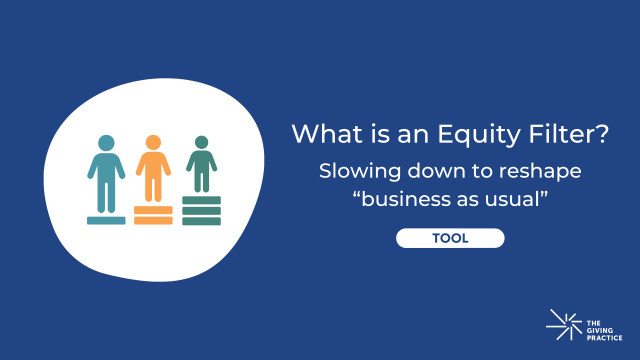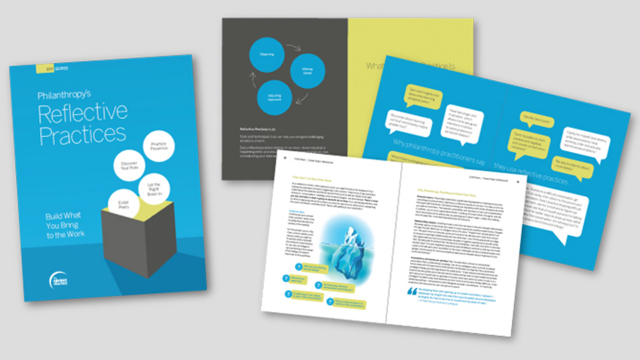
A vivid memory from my first program officer job: I found myself feeling like a fraud.
I had the technical knowledge to do the work. I had the right intellectual training and had developed “chops” working in the trenches of an innovative public-private housing venture. Nonetheless, I was missing the mark in ways I had not expected.
As a program officer I was expected to come up with a strategy for deploying our resources, but whose strategy was it? I was supporting others to solve complex problems without easy answers. How could I help us co-create proposals coming together with very different resources and decision-making power? Often the process felt more like stamping each other’s passports and continuing on as citizens of our own very separate countries.
It was expected that I could say “no” to a good idea that didn’t fit our strategy framework, but how to stay open to emergent ideas signaling from the horizon without becoming a “kid in the candy shop?” I was encouraged to spend time in the field with grantees and applicants learning from their work but didn’t quite know how to introduce countervailing ideas into my own organization based on what I’d seen and heard.
How could I tend to all this while dodging the outsized adulation for my ideas or unreasonable contempt for my position that can come with being inside philanthropy?
These are not problems that have technical solutions. Whether it was preparing for a difficult conversation, creating a collaborative environment, assessing a floundering project, I needed a set of practices that would help me prepare and learn from these experiences, live into a variety of complex roles and develop my own theory of action.
In short, I needed reflective practices.
Through training and shadowing talented grant makers I learned to press the pause button when things didn’t feel right, to do active listening without talking, to use journaling to see systems and boundaries before trying to navigate them, to be direct about my role when it might have been confusing, to prepare for a difficult conversation by telling people my goal for a conversation before initiating one. These practices helped me develop and be adaptive with regard to my own theory of action in complex situations.
Professionals who use these skills in our field often do so without referring to them as reflective practice. Talking about these skills is not part of our professional culture which is very driven by mastery of technical tools. (Funny for a field that is defined as the love of humankind but that is another story.)
Here’s a puzzle for you: why has reflective practice not been a natural fit with philanthropy? So much of what we do requires collaborative inquiry, acknowledging right on both sides of a problem, and navigating power imbalances. So little has a technical solution. We’ve used technology to make the field more transparent. That’s a good thing. But we never seem to step right up to the human component of our work.
Good philanthropy requires people with content expertise. That’s a critical first discipline. But there’s a second discipline that is needed — knowing how to navigate the vast and sometimes roiling seas of getting work done. That includes knowing oneself and being able to examine one’s behaviors in relationship to others.
What would happen if Reflective Practice became philanthropy’s second discipline? Philanthropy’s Reflective Practice is premised on a belief that we can get to better outcomes and we’d be better partners in the field. With my colleagues at The Giving Practice, and with your help, we want to use this website to bring reflective practice to the field and the field to reflective practice.
In that spirit, we pose our first question for generative dialogue: What practices do you use to put your expertise into play? How did you learn them?
Email me with your thoughts and I’ll put together a follow up blog post. If you’d like to write something let me know. We’d welcome that as well as interviewing you for a post. Consider giving this post to your colleagues for a group response to share with the field.
For more information about Reflective Practices, please click here.



